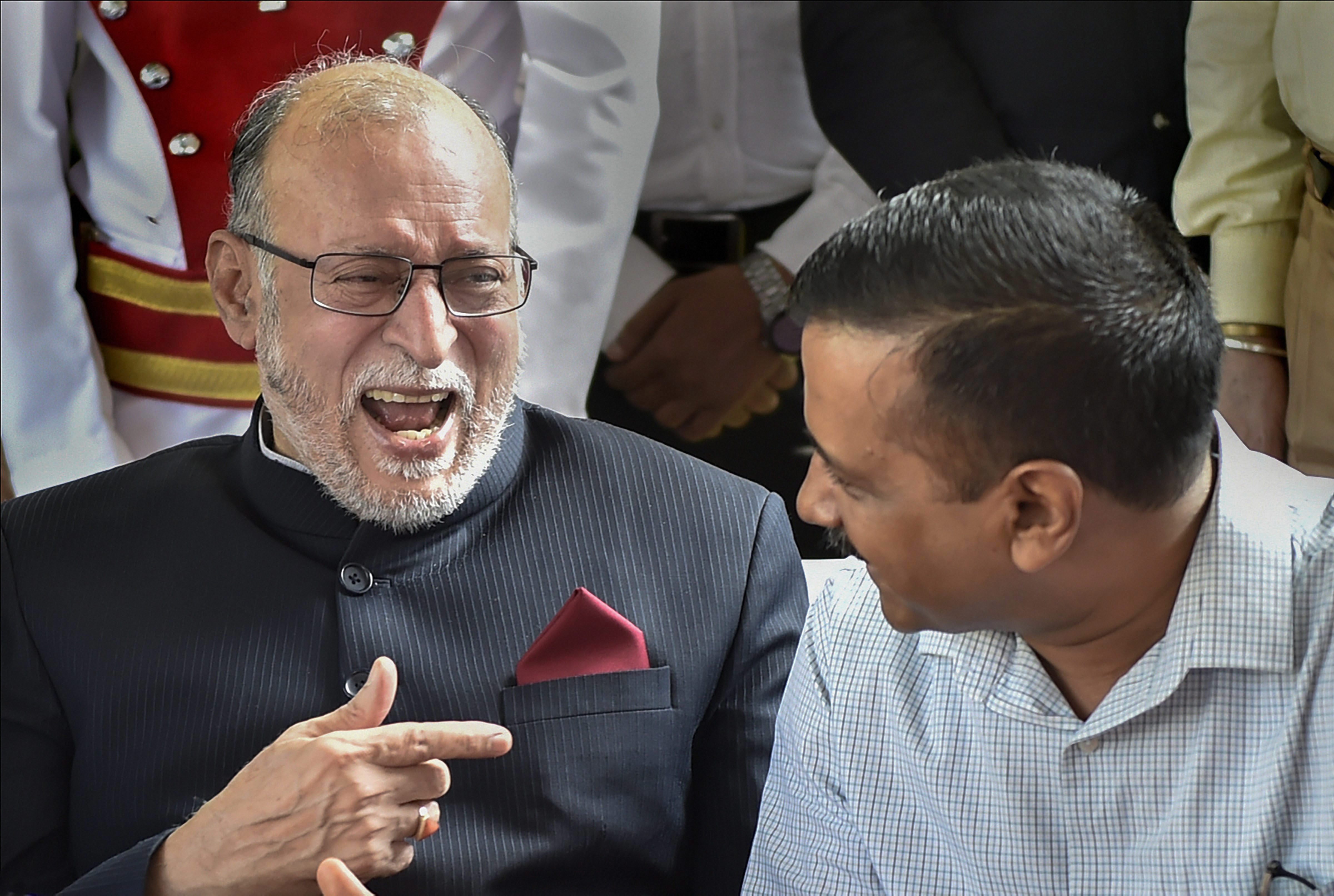The Supreme Court on February 14 delivered a verdict on six appeals pertaining to a long-running feud between the Centre and the Delhi government. The bench of Justices A.K. Sikri and Ashok Bhushan also referred to a larger bench the contentious matter of whose writ will run over bureaucracy, or “services”.
Here’s a list of the issues the apex court tackled and how.
Powers of the anti-corruption branch
What happened: In two notifications, on July 23, 2014, and May 21, 2015, the Union home ministry empowered the then Delhi Lieutenant-Governor (LG) Najeeb Jung to direct the anti-corruption branch (ACB) police station not to take cognizance of offences against officials of the central government.
In their first 49-day stint, the Arvind Kejriwal government had registered an FIR against two former Union ministers, Veerappa Moily and Murli Deora, along with Mukesh Ambani in connection with the pricing of natural gas extracted by Reliance Industries Limited. The July notification clipped the ACB’s powers to probe central government employees and officials in the case. The May 2015 notification reiterated this.
What SC said: The bench on Thursday said that regarding the police, the NCTD or National Capital Territory of Delhi “does not have either legislative or executive power”.
It said that the anti-corruption branch is not empowered to investigate central government employees. It upheld the validity of the two notifications of the home ministry.
Power to issue directions under Delhi Electricity Reforms Act, 2000
What happened: The Delhi government nominated directors to the board of electricity distribution companies without placing the matter before the LG.
What SC said: It is within the jurisdiction of the government of Delhi to issue the June 12, 2015 notification, which appointed the directors on the board, the apex court said.
Revision of minimum rates of agricultural land
What happened: The dispute was over the Delhi government’s power to revise circle rates of agricultural land under the Indian Stamp Act, 1899, and Delhi Stamp (Prevention of Undervaluation of Instrument) Rules.
In a notification dated August 4, 2015, the Delhi government had revised the circle rates. LG Najeeb Jung intervened and asked the revenue department to put the rates on hold until the notification is legally vetted.
What SC said: The bench said the government can take the decision on circle rates, but the LG is also empowered to form an opinion “on any matter”. The judgment noted that “the LG is not expected to differ routinely with the decision of the council of ministers. Differences should be on cogent and strong reasons, the court said. In case of a difference of opinion, the LG can refer the matter to the President.
Power to appoint the special public prosecutor
What happened: In an order dated September 4, 2015, the LG appointed advocate S.K. Gupta as a special public prosecutor on a Rs 100-crore transport scam case. The Delhi government, however, had appointed another lawyer, B.S. Joon, as the prosecutor.
What SC said: The power to appoint a special public prosecutor will lie with the NCT government. The bench, however, observed that, “We, therefore, hold that Lieutenant Governor, while appointing the Special Public Prosecutor, is to act on the aid and advice of the council of ministers.”
Exclusion of Services
What happened: The question was whether the bureaucratic services are beyond the legislative and executive domain of the Delhi government.
In a home ministry notification of September 24, 1998, the LG was mandated to consult the chief minister of Delhi in matters connected to “public order”, “Police” and “Services”. This stand changed after a notification dated May 21, 2015, which allowed such consultations at the discretion of the LG.
The 2015 notification was cited to appoint three chief secretaries to the Delhi government.
What SC said: Transfers and postings of officers of the level of joint secretary and above would be done by the Centre. For other levels, including Delhi, Andaman and Nicobar Islands Civil Service (DANICS) officers, the files can be routed through the chief minister to the LG. The bench said it expected the chief minister as well as the LG to have “a harmonious working relation”. As the two judges differed on the issue of services, it will now be referred to a larger bench.
Setting up an inquiry under the Commissions of Inquiry Act, 1952
What happened: In August 2015, the Delhi cabinet sanctioned an inquiry into a scam related to fitness tests of CNG vehicles. Former Delhi chief minister Sheila Dikshit and LG Najeeb Jung were likely to be questioned. A retired high court judge was to head the commission. But the LG told the government that the commission was “legally invalid and void ab initio”. The question before the court was whether the Delhi government is empowered to set up an inquiry under the Commission of Inquiry Act without involving the LG.
What SC said: The bench upheld the view of Delhi High Court, which had earlier said that the expression “State Government” in the case of a Union Territory would mean the central government. By this definition, it would make the central government the competent authority to form a commission of inquiry under the Act.











